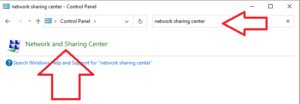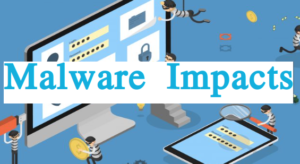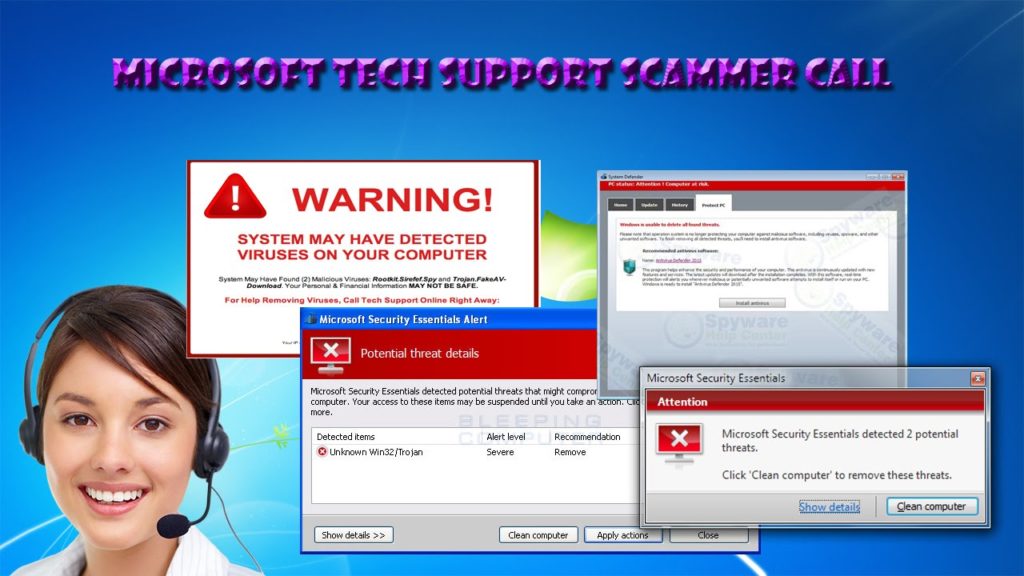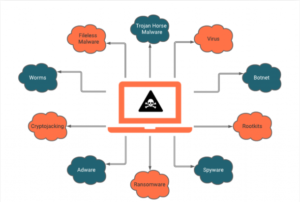How to remove Douarix Ransomware: Recover encrypted files
Douarix Ransomware encrypts files and demands ransom payment for the decryption
Douarix Ransomware is very notorious file virus belongs to Ransomware family. It is new variants of VoidCrypt Ransomware. This dubious file virus operates by locking all types of files stored in your computer and demands ransom payment for the decryption. It states the ransom payment must be made in Bitcoin cryptocurrency. During encryption process, it changes your personal files by adding cybercriminals’ email ID, sting of random characters, and .Douarix File Extension. For example, it renames ‘1.png’ filename to ‘1.png.[[email protected]][MJ-MI6098514372].Douarix’.
After encryption process is completed, ‘Decrypt-me.txt’ text files as ransom notes are dropped into each folder of your computer that contains encrypted files. The ransom note states that all files of your computer hard drive have been locked and requires paying certain amount of ransom money in Bitcoin cryptocurrency for the decryption. Initially, you must find ‘prvkey*.txt.key’ file which has to be send to cybercriminals via provided email ID. You are also instructed to attached some encrypted files to emails in order to test decryption service.
Douarix Ransomware’s ransom note states you can send 2-3 locked files to the provided email addresses for free decryption service as proof that they can recover your locked files. After free decryption test successful, it asks you to pay certain amount of extortion money to decrypt rest of the files. We recommended you to avoid contacting cybercriminals behind this ransomware, and avoid paying any amount of ransom money for the decryption to them. Paying extortion money may lead to severe privacy issues, financial losses, or even identity theft.
To prevent your system from this nasty ransomware attack, you should try to find and remove Douarix Ransomware related files in your computer as soon as possible. Here, you are provided with easy automatic and manual methods to remove this type of malicious programs from computer. After malware or ransomware removal, you can try to restore your locked files from backup. You should make sure that you have strong backup of your all personal files on some safe external media storage device.
How did you get Douarix Ransomware in Windows computer?
Ransomware-type malware is distributed through spam email campaign or malspam campaign. Cybercriminals use the name & LOGO of some trustworthy companies on its email message as proof that they are genuine senders. Usually, these spam emails contain some false-positive messages along with malicious hyperlinks or attachments. The attachments can be Microsoft Office documents, PDF, RAR, ZIP, JavaScript or other formats of files. Once opened, it execute certain codes/scripts to infect your computer. For example, Microsoft Office document as malicious attachments infect your computer by enabling malicious macro commands. Ransomware-type malware can also be distributed through unofficial/unsafe sources, fake software updaters, installers and downloaders, and other third-party sources.
How to protect your system against Ransomware?
Any attachments or hyperlinks presented in spam emails must not be opened. Any applications must not be downloaded/installed or purchase from unofficial/unsafe websites. You should always try to download any applications from official and verified sources, and never reply any spam emails at any cases. Also, you should keep up-to-date all software installed in your computer including operating system, antivirus software and other software. Make sure that you have strong antivirus software with latest update installed in your computer that could help you to find and remove all types of threats including latest threats in computer.
Let’s take a look at ransom note:
All Your Files Has Been Encrypted
You Have to Pay to Get Your Files Back
1-Go to C:\ProgramData\ folder and send us prvkey*.txt.key file , * might be a number (like this : prvkey3.txt.key)
2-You can send some file little than 1mb for Decryption test to trust us But the test File should not contain valuable data
3-Payment should be with Bitcoin
4-Changing Windows without saving prvkey.txt.key file will cause permanete Data loss
Our Email:[email protected]
in Case of no Answer:[email protected]
Special Offer (For Windows)
Douarix Ransomware can be creepy computer infection that may regain its presence again and again as it keeps its files hidden on computers. To accomplish a hassle free removal of this malware, we suggest you take a try with a powerful Spyhunter antimalware scanner to check if the program can help you getting rid of this virus.
Do make sure to read SpyHunter’s EULA, Threat Assessment Criteria, and Privacy Policy. Spyhunter free scanner downloaded just scans and detect present threats from computers and can remove them as well once, however it requires you to wiat for next 48 hours. If you intend to remove detected therats instantly, then you will have to buy its licenses version that will activate the software fully.
Data Recovery Offer
We Suggest you to choose your lately created backup files in order to restore your encrypted files, however in case if you don’t have any such backups, you can try a data recovery tool to check if you can restore your lost data.
Antimalware Details And User Guide
Step 1: Remove Douarix Ransomware through “Safe Mode with Networking”
Step 2: Delete Douarix Ransomware using “System Restore”
Step 1: Remove Douarix Ransomware through “Safe Mode with Networking”
For Windows XP and Windows 7 users: Boot the PC in “Safe Mode”. Click on “Start” option and continuously press on F8 during the start process until the “Windows Advanced Option” menu appears on the screen. Choose “Safe Mode with Networking” from the list.

Now, a windows homescreen appears on the desktop and work-station is now working on “Safe mode with networking”.
For Windows 8 Users: Go to the “Start Screen”. In the search results select settings, type “Advanced”. In the “General PC Settings” option, choose “Advanced startup” option. Again, click on the “Restart Now” option. The work-station boots to “Advanced Startup Option Menu”. Press on “Troubleshoot” and then “Advanced options” button. In the “Advanced Option Screen”, press on “Startup Settings”. Again, click on “Restart” button. The work-station will now restart in to the “Startup Setting” screen. Next is to press F5 to boot in Safe Mode in Networking.

For Windows 10 Users: Press on Windows logo and on the “Power” icon. In the newly opened menu, choose “Restart” while continuously holding “Shift” button on the keyboard. In the new open “Choose an option” window, click on “Troubleshoot” and then on the “Advanced Options”. Select “Startup Settings” and press on “Restart”. In the next window, click on “F5” button on the key-board.

Step 2: Delete Douarix Ransomware using “System Restore”
Log-in to the account infected with Douarix Ransomware. Open the browser and download a legitimate anti-malware tool. Do a full System scanning. Remove all the malicious detected entries.
Special Offer (For Windows)
Douarix Ransomware can be creepy computer infection that may regain its presence again and again as it keeps its files hidden on computers. To accomplish a hassle free removal of this malware, we suggest you take a try with a powerful Spyhunter antimalware scanner to check if the program can help you getting rid of this virus.
Do make sure to read SpyHunter’s EULA, Threat Assessment Criteria, and Privacy Policy. Spyhunter free scanner downloaded just scans and detect present threats from computers and can remove them as well once, however it requires you to wiat for next 48 hours. If you intend to remove detected therats instantly, then you will have to buy its licenses version that will activate the software fully.
Data Recovery Offer
We Suggest you to choose your lately created backup files in order to restore your encrypted files, however in case if you don’t have any such backups, you can try a data recovery tool to check if you can restore your lost data.
In case if you cannot start the PC in “Safe Mode with Networking”, Try using “System Restore”
- During the “Startup”, continuously press on F8 key until the “Advanced Option” menu appears. From the list, choose “Safe Mode with Command Prompt” and then press “Enter”

- In the new opened command prompt, enter “cd restore” and then press “Enter”.

- Type: rstrui.exe and Press “ENTER”

- Click “Next” on the new windows

- Choose any of the “Restore Points” and click on “Next”. (This step will restore the work-station to its earlier time and date prior to Douarix Ransomware infiltration in the PC.

- In the newly opened windows, press on “Yes”.

Once your PC gets restored to its previous date and time, download the recommended anti-malware tool and perform a deep scanning in order to remove Douarix Ransomware files if they left in the work-station.
In order to restore the each (separate) file by this ransomware, use “Windows Previous Version” feature. This method is effective when “System Restore Function” is enabled in the work-station.
Important Note: Some variants of Douarix Ransomware delete the “Shadow Volume Copies” as well hence this feature may not work all the time and is applicable for selective computers only.
How to Restore Individual Encrypted File:
In order to restore a single file, right click on it and go to “Properties”. Select “Previous Version” tab. Select a “Restore Point” and click on “Restore” option.

In order to access the files encrypted by Douarix Ransomware, you can also try using “Shadow Explorer”. In order to get more information on this application, press here.

Important: Data Encryption Ransomware are highly dangerous and it is always better that you take precautions to avoid its attack on your work-station. It is advised to use a powerful anti-malware tool in order to get protection in real-time. With this help of “SpyHunter”, “group policy objects” are implanted in the registries in order to block harmful infections like Douarix Ransomware.
Also, In Windows 10, you get a very unique feature called “Fall Creators Update” that offer “Controlled Folder Access” feature in order to block any kind of encryption to the files. With the help of this feature, any files stored in the locations such as “Documents”, “Pictures”, “Music”, “Videos”, “Favorites” and “Desktop” folders are safe by default.

It is very important that you install this “Windows 10 Fall Creators Update” in your PC to protect your important files and data from ransomware encryption. The more information on how to get this update and add an additional protection form rnasomware attack has been discussed here.
How to Recover the Files Encrypted by Douarix Ransomware?
Till now, you would have understood that what had happed to your personal files that got encrypted and how you can remove the scripts and payloads associated with Douarix Ransomware in order to protect your personal files that has not been damaged or encrypted until now. In order to retrieve the locked files, the depth information related to “System Restore” and “Shadow Volume Copies” has already been discussed earlier. However, in case if you are still unable to access the encrypted files then you can try using a data recovery tool.
Use of Data Recovery Tool
This step is for all those victims who have already tries all the above mentioned process but didn’t find any solution. Also it is important that you are able to access the PC and can install any software. The data recovery tool works on the basis of System scanning and recovery algorithm. It searches the System partitions in order to locate the original files which were deleted, corrupted or damaged by the malware. Remember that you must not re-install the Windows OS otherwise the “previous” copies will get deleted permanently. You have to clean the work-station at first and remove Douarix Ransomware infection. Leave the locked files as it is and follow the steps mentioned below.
Step1: Download the software in the work-station by clicking on the “Download” button below.
Step2: Execute the installer by clicking on downloaded files.
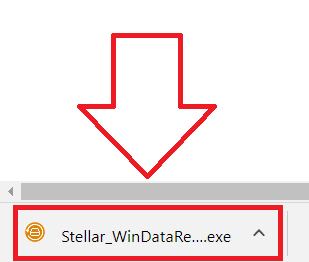
Step3: A license agreement page appears on the screen. Click on “Accept” to agree with its terms and use. Follow the on-screen instruction as mentioned and click on “Finish” button.

Step4: Once the installation gets completed, the program gets executed automatically. In the newly opened interface, select the file types that you want to recover and click on “Next”.

Step5: You can select the “Drives” on which you want the software to run and execute the recovery process. Next is to click on the “Scan” button.
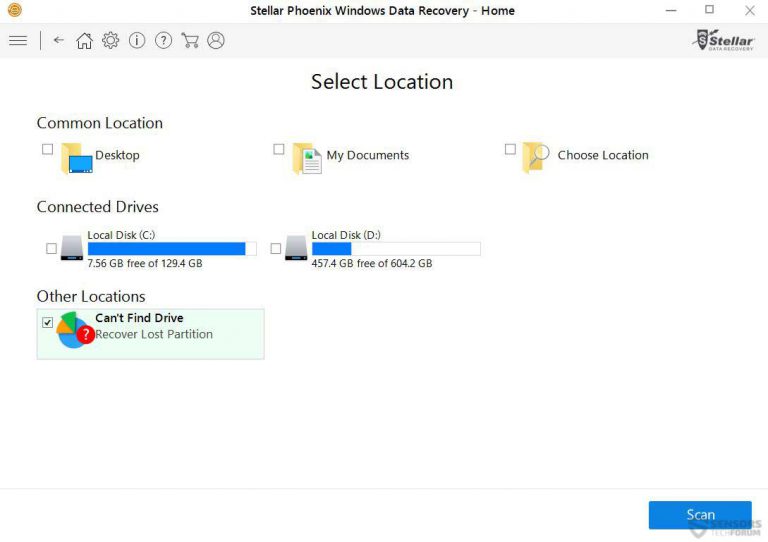
Step6: Based on drive you select for scanning, the restore process begins. The whole process may take time depending on the volume of the selected drive and number of files. Once the process gets completed, a data explorer appears on the screen with preview of that data that is to be recovered. Select the files that you want to restore.

Step7. Next is to locate the location where you want to saver the recovered files.

Special Offer (For Windows)
Douarix Ransomware can be creepy computer infection that may regain its presence again and again as it keeps its files hidden on computers. To accomplish a hassle free removal of this malware, we suggest you take a try with a powerful Spyhunter antimalware scanner to check if the program can help you getting rid of this virus.
Do make sure to read SpyHunter’s EULA, Threat Assessment Criteria, and Privacy Policy. Spyhunter free scanner downloaded just scans and detect present threats from computers and can remove them as well once, however it requires you to wiat for next 48 hours. If you intend to remove detected therats instantly, then you will have to buy its licenses version that will activate the software fully.
Data Recovery Offer
We Suggest you to choose your lately created backup files in order to restore your encrypted files, however in case if you don’t have any such backups, you can try a data recovery tool to check if you can restore your lost data.


